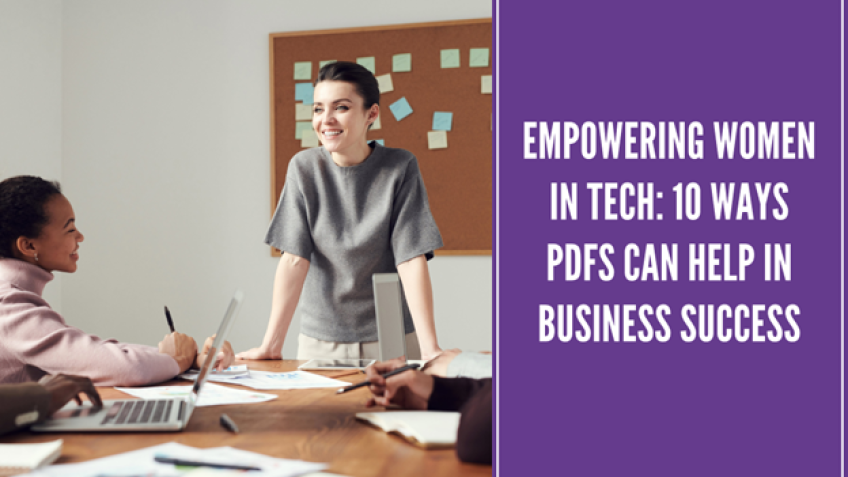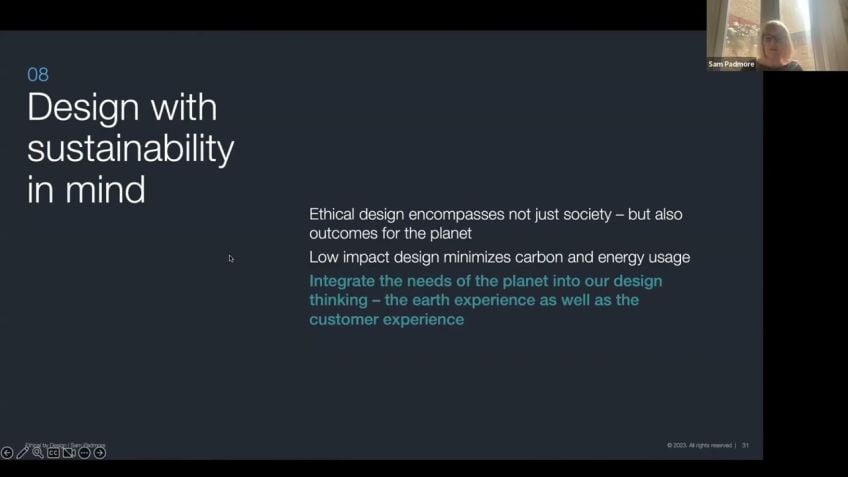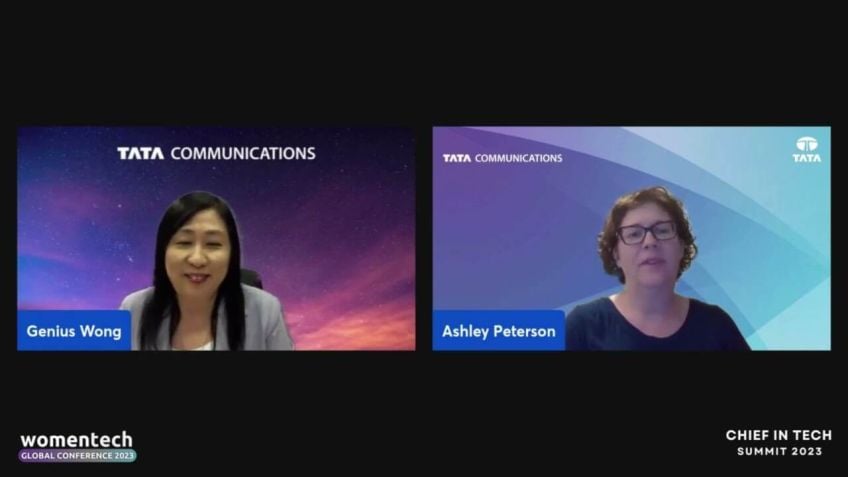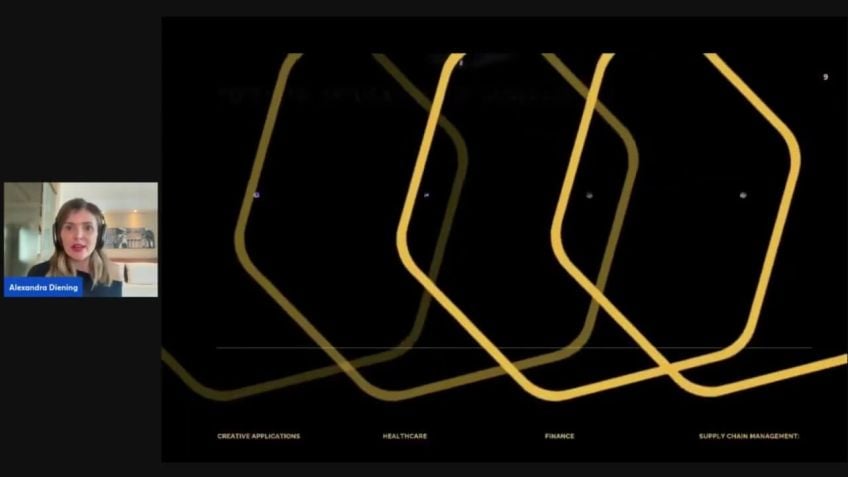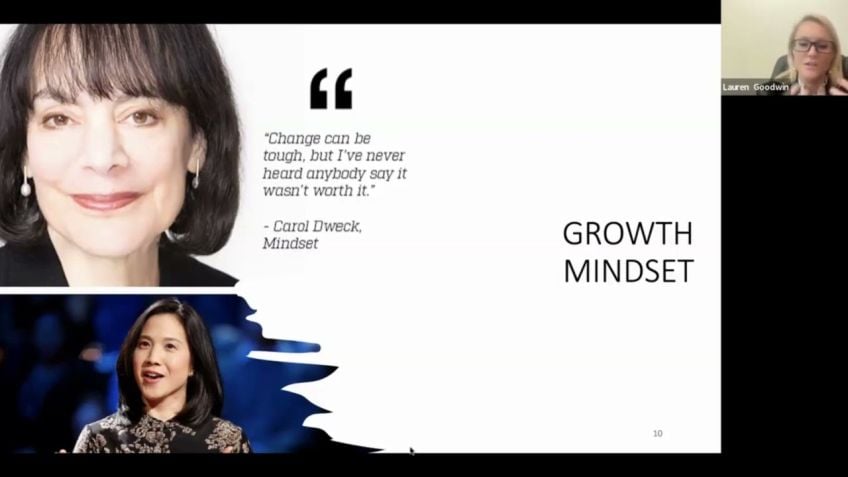Vivian Chan - How is XR going to change the way we interact?
How Augmented Reality is Changing the World
Hello! I'm Vivian Chen, the Global Head of Digital Sales at Next Tech AR. With 21 remarkable years in tech, I've witnessed how technology has diverged and converged in different areas, particularly with the rise of Augmented Reality.
My Journey in Tech
My career started out in analytics, then transitioned into launching AI solutions with SAP. I later moved to VM Ware, launching different cloud services that evolved how we develop and function. A once six-month development cycle has been cut to mere 2-3 week sprints all due to the Cloud. But now, my focus is on Extended Reality specifically Augmented Reality. The future of experience is becoming more visceral and immersive, with technology shaping every sphere of your life.
What is Extended Reality?
Let's first clarify what Extended Reality (XR) means. XR is a spectrum that covers Virtual Reality (VR), Augmented Reality (AR), and Mixed Reality. In simple terms, VR transports you into a digital world using headsets like Oculus or HTC. On the other hand, AR infuses digital information into the real world using your mobile phone or a tablet, thus enhancing your experiences. And right in the middle is Mixed Reality, allowing you to experience real-world elements with digital overlays through wearables or headsets. This technology is known as Extended Reality.
Impacting Lives with Augmented Reality
Now, let's delve into how AR is going to redefine your life and how you interact with your world.
1. Human Holograms
At Next Tech AR, we believe in the power of human holograms in transforming how we interact. Imagine the possibilities of being able to create your holograms or even of your family, peers, and client and share them across continents. If you could be in five places at once, how would it change your experiences or your business? AR and human holograms also have the power to revolutionize how we shop. With increased online purchasing behavior, the 'try or see before you buy,' concept enabled by 3D immersive technologies becomes increasingly important. You can also expect to see human holograms becoming virtual experts, enhancing product education and driving repeat purchases. For instance, we're partnering with a vitamin company, True Life, to create smart packaging facilitated by AR.
2. An Innovative Approach to Learning
Another aspect of our lives primed for AR disruption is education. Picture the idea of meeting your lab professor in your home, learning to use lab equipment through AR. By partnering with institutions like Ryerson University, we shipped lab experiences to students' homes, creating engaging and personalized learning modules.
Exploring Career Pathways in Tech
If the world of AR and tech intrigues you, consider the various roles available in the tech industry. You can opt to be a developer or get into the design field if you enjoy making things. If you are more inclined towards sales and marketing, like myself, there is a whole world of opportunities in that aspect. There are also roles tailored to helping customers in support and service delivery or opting for positions in the administrative and human resources fields.
In Conclusion...
As the world of tech and AR opens up new possibilities in how we shop, learn, and live, it’s important to anticipate that in the next 2-5 years, XR is going to fundamentally shift our interaction with technology. We are moving towards an era where experiences will be highly visual, experiential-based, and deeply personal.
While technology promises exciting developments and integrations into our lives, it's crucial to bear in mind the responsibility that comes with it. We should use it to foster connections, make technology more human-centric and better tailored to its users.
To explore more about these emerging technologies and their impact, please join my new channel, Vivian Channel, on the Next Live X creator platform. Let's continue the conversation on how technology is humanizing our world!
Video Transcription
Good morning. Good afternoon and good evening to everyone. My name is Vivian Chen and I'm the global head of digital sales at next tech A R.We are a company that is bringing augmented to reality in how into the world and changing the way you live, work and play. So a little bit about uh my background um I have been 21 years in technology. Um It's been an incredible journey and it's a story around convergence. I started out in my career in analytics and then later launched um A I solutions at SAP. Um and then moved over to VM Ware and was launching cloud um variations of different cloud services in including SAS to all the way to infrastructure as a service. And we started to see um you know, technology starting to shift but converge, you know, we were getting more intelligent with how um we were making decisions. So, you know, the world was starting to stop guessing. We're using data to make informed decisions and then cloud democratized everything we can now start sharing uh things together, we could be working on things like Canva, which is one of my favorite tools right now, another amazing woman led company where you can build graphic design as a team, you could work on team projects together.
Clouds completely changed the way that we develop. Um What used to be a six month development cycle is now you can do it in 2 to 3 week sprints because of cloud. And then now I'm moving over to um XR or extended reality with a focus on augmented reality. This is um where my career has taken me over the last eight years because we think that the future of experience is going to be very visceral and immersive. Your life is about to feel like a video game. So let's talk a little bit about what that means. What that means is that with the convergence of all these technologies, you're gonna see more community-based um applications, you're going to see technology as entertainment um as you guys know, if it doesn't have great usability and if it doesn't entertain and delight, you're not gonna use it.
And then the other piece too that, that I found in my career is that really at the end of the day because of all this rapid change that's happening, we are all lifelong learners. So how does technology facilitate that? So first of all, let's uh let's get under some terminology, let's talk about what is extended reality or XR, it really is a spectrum and that spectrum um really extends be between virtual reality and augmented reality with mixed reality in the middle. So let's kind of break it down. Uh Simple, very quickly. Virtual reality is when you wear a headset like Oculus um or, or, or HTC, you wear a headset where you're fully immersed in the digital world. So the background, the surroundings, the objects in gaming, you often want to be completely subsumed by a totally digital environment because it transports you into a new place or a new scenario. Um I know a lot of entrepreneurs that have virtual reality to help uh with pain treatment, with anxiety, with um with learning new um new skills like welding. As an example, you want to be fully immersed into another environment, feeling like you're almost transported, that's virtual reality.
So it's completely digital on the other side of the spectrum, which is augmented reality, which is where I'm I'm playing in right now is where you're living sting digital information into the real world. So often augmented reality right now is experienced through your mobile phone or a tablet where you're literally, you see the real world through your mobile phone, but you're able to like layer a digital piece of information uh into that environment, that information could be a product, a place or person or even just a text.
And so we'll talk a little bit more about that later. Today, we're going to dive into that in the middle and this middle part is about to grow um big time is mixed reality. You also have a, a wearable or a headset. So usually in the form of glasses we've heard recently like Google Snapchat, Facebook, they're all gonna launch mixed reality headsets. Those headsets allow you to see the real world. But again, layer in another um you know, dimension of information uh through your, through the headset.
So this is extended reality. So let's talk a little bit about augmented reality today and talk about how it's going to change your life and, and change the way you interact with one another. So, first of all, let's delve into the world of human holograms. I believe human holograms will change the way we live. Um At next tech A R we're actually building some incredible human hologram technology. Um Very soon you'll be able to create your own hologram of yourself uh of uh your coworkers. Um And even of your family. And so think about the ramifications of that, you are able to um share a hologram of yourself to your grandmother who may be uh on the other side of the world and be able to give her a greeting that's um in her living room so that she feels like you're connected and that you're close by.
What if you could be in five places at once? How would that change as well? Let's say you're a creator and you are giving a seminar on um the latest sort of yoga, breathing method. And um you've got a global audience. What if you were able to connect with your audience in a very intimate and personal way where they beam you in as a hologram to kind of learn uh you know, that modra or that breathing exercise close to you. And what would it look like if um you know, you, you, you, we have different brand ambassadors. Um The future brand ambassadors can be these digital uh personalities that come and um help uh problem solve uh a support issue or help introduce you to some promotions um that you're close by to so very soon. And if not even now, as you can see, you can be in five places at once. And this is an example of, of uh where we've done a live uh streaming hologram with our CEO who was literally in 100 places at once. And so this is what he looked like in everyone's home holograms will also change the way we shop. Um You know COVID has really changed, it has really inverted shopping, right? What used to be an in-person store experience is now reversed to a lot of online purchasing.
You know, it's a 8020 rule, I think uh I think there was a recent statistic where like 80% of our shopping uh has moved to online. And you know, if that mix will continue to change as the world kind of opens up, but we're getting used to online shopping. And so this notion of try or see before you buy is enabled by 3D immersive technology. Again, human holograms allow you to see a dress or shirt. Uh Before you consider purchasing it, it's a little bit more of an extra to photos and to video because you're literally literally able to pivot it, look at it from different angles, get a sense of what it looks like. And again, um you know, companies right now are looking at virtual mirrors where you can scan your body, you can put a, a virtual 3d um shirt on to see if it fits all of that is is happening um in the next year. Um it's already happening, but the quality levels vary and so very, very soon, um you'll be able to have a digital avatar of yourself and be able to try on clothes digitally. This is a great example of where human holograms become virtual experts.
We're working with a vitamin company called True Life uh to create uh smart packaging. So in the packaging is a QR code and once you take a photo of the QR code and launch it, uh Nora who is a registered dietitian will actually explain to you how you use the turmeric um vitamin, how you should take it when you should take it. Uh answer any questions you have about the product you're about to consume and it makes a huge difference because having that extra product education enables repeat purchases. And we're noticing a lot of success with true life there. They've, they've actually five extra repeat purchases.
After smart packaging, human holograms will also change the way you learn. Imagine this, imagine being able to um meet your lab uh professor uh or lab instructor uh who will be able to show you how to use laboratory equipment. A lot of us um you know, for the last sort of 12 months, haven't been able to go in person for school. And a lot of the school's been virtual. How do we make education exciting? How do we make education feel like it's come to us? Well, augmented reality learning enables this. This is a great example of where we took laboratory equipment and brought it into students homes using their mobile phone. Again, students needed to learn how to use a Bunsen burner, they needed to learn how to use a telescope. Um They needed to learn how to use lab equipment. Um We partnered with Ryerson Universities to kind of create these very personalized experiential learning um modules for over 5000 science students. And it was with great success because folks were, were basically saying, you know what, this mixes up the, you know, the zoom fatigue that we're all experiencing. So actually, we, we've jumped a little bit, let me just kind of go back. Um So I wanna just quickly break down. We've talked a little bit about holograms I know a lot of you in the audience are, are looking at a career in, in tech and stem.
And so one of the things I wanted to, to kind of break it up is is talk a little bit of career pathways having been in technology for 21 years. Here's some insight I have. If, if someone were to, to talk to me earlier in my career, what are my options of getting into tech? There are so many jobs in technology and it's a very um vibrant, satisfying, fast moving career, but you don't necessarily need to be a developer to just be in tech. And so what I wanted to kind of break it down, what roles are available in tech and how you to think about your career. I also have a talk on why career is not linear, that's on my linkedin. So if you want to check that out, um that is another great talk about nonlinearity of careers. But to get back to this, if you wanna make things, um a career in tech would probably look like being a developer, being in product uh doing testing, testing is very important. You know, there are large Q A teams to test, ensure that the products work.
Testing is also a great way to get into development. Um If you're still learning development and learning code um going into testing and then moving into developers is a really natural career path. And then if you're very design oriented, there's Uiux as well. Um If you got more of a creative technology ST you like to code, but you're also a bit creative, the design field in, in technology is also a great thing. So that's the make things category. If you're like me, I'm in the category of sell things. I've spent my career um in marketing and sales roles. And so I like to connect with people. What gives me energy is listening to and understanding um businesses and um and people's problems. And at the end of the day, as a sales leader, I'm a matchmaker. I'm not selling folks things that they don't want. I'm matchmaking to see if we've got a solution to a problem that someone has. And it's been a very, very fulfilling career for 21 years. The third category is helping customers if you want to be helpful, but you don't want the pressure of sales and marketing uh targets helping customers. There's lots of roles in technology in the support, technical support and service delivery field where after um a a deal has been closed, you're the people that support customers in realizing um their business needs with what technology can and can't do.
And then finally, what if you want to just help employees? Um There's a lot of roles in technology and accounting and human resources in the admin functions that are also incredibly important and key to a technology company So hopefully, this gives you a little bit of view of career pathways in tech. So in summary, if I were to summarize um what we're talking today, if you could add digital objects into the real world, how would it change the way you shop, learn and live? And so really, this is the the genesis of our talk today. Hopefully, um at the end of this talk, there will be a couple of QR codes for you to literally take out your mobile phone, activate the QR code and try some of these augmented reality activations that we just talked about. So I want to make sure um yeah, have your phones ready. I've got a slide ready for you to try some of this augmented reality so that you can visualize how this is going to change, how you shop live and learn. The other thing that I wanted to kind of close with is how will XR change the way we interact? Well, I believe that in the next 2 to 5 years, you're gonna see a rapid change in the next wave of computing and that computing will be XR.
Our experiences with technology are gonna be highly visual. You're gonna be able to layer digital objects, people places into um your world through XR. It's also going to be very experience based. Um You know, we're, we're right now talking to um you know, we're talking to a big medical manufacturer about how do you educate people and how to use uh a medical device with no language. Um by just showing that it's a twist click and insert action, you know, everything is going to be very experiential based. And I believe that XR being a very visual and very animated medium will facilitate that. And finally, it's going to be very personal. I'm looking forward to sending um you know, holographic holograms, telegrams to my family on the other side of Europe, I haven't seen them for over 18 months and wouldn't be great to send my aunt a happy birthday, a very personal happy birthday greeting in the form of a hologram.
This is now possible. So if you want to check out more about uh technology and how we're going to humanize technology through experience, I'm launching uh Vivian channel. This is um on next live X creator platform. Um You will need to sign up. I am hosting weekly shows where I interview uh experts on um Xr. Uh we've got Ross mcnulty who's a fashion 3d apparel expert. Um I'll be interviewing Julianna Low who built um immersive installations for Burning Man and recently did a play in New York at the shed. Um But I'll also be showing you how you use technology to create um as a creator. And so um do uh join my channel? And also if you want to check out a Ferrari uh in your room or walk into a church here are two QR codes that you can scan. I will leave them up for a few minutes and then I'm happy to take also any questions that may be coming um from the chat line. Um But great to connect with all of you and I wish you a great day and good evening and thanks for joining Woman Tech conference.
Thank you so much. That was fantastic. More questions than answers. So to say, I love the idea of having a, having a possibility to send a very special happy birthday greeting in the fall of a hologram. Sounds crazy but possible already, right?
Yeah. And
people sharing lots of, lots of emotions and, and, and thanking you for this Enlightening talk, awesome presentation. This is awesome love and all information I'm getting now. So yeah, just go ahead. You wanted to say something.
So, yeah, thank you. And I think, yeah, I think that technology can make us closer, you know, um you know, we're all learning and we all have a responsibility. A lot of times the things that we create are things that we don't know, there are unintended consequences to that. You know, we've all been talking about ethics and, and, and technology, you know, I don't, I really truly believe that Mark Zuckerberg did not intend that Facebook would create so much division. I don't think that was the intention. Originally, the intention was always to connect, to create more human moments for us And so as you guys are building a career in technology, we always need to be aware that what we intend to create sometimes ends up having unintended consequences. But the, the thing is we can fix that and Facebook is fixing that. Um by the way, there's a team of amazing women who are actually working at fixing the algorithms right now at making it more equitable, less divisive and all that. It just takes time to fix things that we've created. And so um realize that your career not only includes building, making things and selling things, but a responsibility to, to fix it when it isn't meeting humanity and its needs.
And so we're on a journey together and um this journey is a fast one, but it's an exciting one and it's so great to see over 100,000 women in stem because I think your perspectives as women are going to change the way that we make and sell things that your perspectives on how you can connect the dots and humanize things is going to make technology better.
So keep it up and, and keep going.
Definitely. Thank you so much Vivian for this inspiration and motivational message. At the end of your talk. It was great to have you with us. And um yeah, um and I'm wishing you a great day. It was great. Thanks for sharing this QR Codes. I'm sure some of you took some screenshots and we check out the information super info about the future world. The future is here. The future is now and you are part of it. Thank you, Vivian. We are looking forward to having you again at our future events. Thank you so much. Stay with us in the chat and check out the networking area as well. I'm sure many people would love to connect with you.
I'll join the networking area now. Thanks Anna for organizing all this. Have a great day, everyone.

